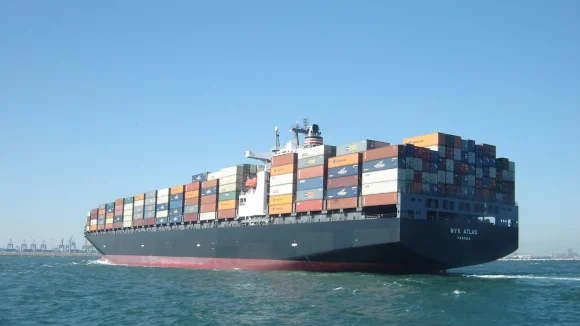Maersk, Hapag Lloyd, CMA CGM, and other shipping companies are diverting “previously paused” vessels from the Red Sea and the Gulf of Aden. The new directive reroutes vessels around Africa’s Cape Of Good Hope – a longer, more expensive trip.
Maersk says vessels have been diverted “for safety reasons, and future services would also be the subject of a security evaluation to determine necessary contingencies”.
Red Sea disruptions
The change in routes follow after Yemen’s Houthis say it will continue to disrupt operations in the Red Sea until Israel stops the war on Gaza. In December, Houthi official Mohammed Abdulsalam told Reuters all waters near Yemen are safe, except for vessels traveling to Israel.
Christian Roeloffs, co-founder and CEO of Container xChange, says the Red Sea “is like a superhighway for shipping containers, connecting different parts of the world, particularly Europe, Asia and Africa.”
“Recent disruptions are poised to escalate operational costs, adding significant strain, while concurrently exerting downward pressure on profits. It marks a disheartening beginning to the strategic planning for the year 2024.”
Economic impact and cost of detours
The detour around Africa’s Cape of Good Hope is approximately 40% longer, and could result in delays of seven to 14 days. Some vessels may be delayed further due to congestion at destination ports.

About 30% of all container movement passes through the Red Sea, including most of Europe’s energy supply, palm oil, and grain shipments. The detours will have an impact on global freight costs – an approximate increase of 15 to 20% in costs for carriers, according to some estimates.
Maerks is “invoking Clause 20(a) of the Terms for Carriage and Clause 22(a) of the House Bill of Lading to recover additional shipping costs.” In addition, the company would continue to monitor the situation in the Red Sea and “withdraw surcharges as soon as operationally feasible.”
While the redirection signifies a shift in global logistics, it’s not the only notable development in the maritime sector. In related news, Maersk announced strategic expansion to Tunisia.
New Maersk route to Tunisia
Maersk media relations manager Rainer Horn says a new route to the Port of Radès in Ben Arous Governorate, Tunisia will reduce overall transit times. The new transport solution connects the Tunisian market to Europe, Middle East, and Asia.
It connects the Port of Radès to the port of Cagliari in Italy. Furthermore, the weekly service offers the best connection between Morocco and Tunisia.
To ensure seamless and reliable logistics in Tunisia, Horn says Maersk established “a wide range of value adding services for customers including the availability of a bounded warehouse, airfreight, less than container load cargo (LCL) as well as supply chain and 4PL solutions.”
About the author
Cheryl has contributed to various international publications, with a fervor for data and technology. She explores the intersection of emerging tech trends with logistics, focusing on how digital innovations are reshaping industries on a global scale. When she's not dissecting the latest developments in AI-driven innovation and digital solutions, Cheryl can be found gaming, kickboxing, or navigating the novel niches of consumer gadgetry.










